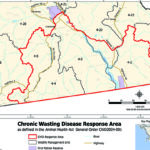Home »

Thomas Melnick to chair Electoral Boundaries Commission
A Cranbrook-based Supreme Court Justice has been appointed as chair of the Electoral Boundaries Commission, the Ministry of Justice announced this afternoon (May 12).
Justice Thomas Melnick, a justice of the Supreme Court of British Columbia, will chair the three-person panel. The other two appointees are Beverley Busson, former commissioner of the Royal Canadian Mounted Police, and Dr. Keith Archer, British Columbia’s chief electoral officer.
The 2014 Electoral Boundaries Commission is tasked with recommending provincial electoral boundaries before the next election.
Members of the Electoral Boundaries Commission must include a judge or a retired judge of the Supreme Court or the Court of Appeal, B.C.’s current chief electoral officer, and a third member recommended by the Speaker of the House in consultation with the Premier and Leader of the Official Opposition.
Amendments to the Electoral Boundaries Commission Act have been passed by the legislative assembly that, once brought into force, will require the commission to preserve the current number of electoral districts in three northern and rural regions of the province. The amendments also will permit the commission to recommend up to 87 electoral districts province-wide. Currently, B.C. has 85 electoral districts.
The commission will seek community input through a provincewide consultation before developing its recommendations. A preliminary report must be submitted to the Speaker within a year of the commission’s appointment. A final report must be submitted within six months of the release of the preliminary report.
Justice Thomas Melnick received his bachelor of laws from the University of Western Ontario in 1967 and was called to the bar of British Columbia in 1968.
Melnick began his legal career at Graham and Company in Cranbrook between 1968 and 1970. He subsequently became a partner at Melnick, Carlgren, Erickson until 1980, when he joined Steidl, Kambeitz, Melnick and Donald. In 1985, he joined Shrum, Liddle and Hebenton in Vancouver and was appointed Queen’s Counsel the same year. In 1987, Melnick was called to the bench as a County Court judge in the Kootenay region, and was appointed to the Supreme Court of British Columbia in 1990.
Melnick has been active with legal organizations throughout his career and has assumed numerous leadership roles, some of which include being past president of the Kootenay Bar Association, a bencher and chairman of the Professional Standards Committee for the Law Society of B.C., a member of the National Judicial Ethics Advisory Committee, an instructor for the People’s Law School and a guest lecturer for the University of British Columbia law school.
Beverley Busson joined the RCMP in 1974 as one of its first female members. She has served in a variety of front-line operational positions that included general duty, fraud investigation, drug enforcement and serious crimes investigations. She holds a law degree from the University of British Columbia.
In 1999, Busson left the RCMP to head the Organized Crime Agency of British Columbia, and returned in 2000 as the commanding officer of British Columbia.
She was promoted to deputy commissioner for the Pacific Region in 2001, while retaining her role as the commanding officer.
In 2004, she was invested as Commander of the Order of Merit of the Police Forces and in June 2006, she received the Order of British Columbia. In December 2006, she became the first woman appointed as commissioner of the force, and retired in July 2007. Busson also holds the 30-year long service award from the RCMP and the Queen’s Golden Jubilee Medal.
Dr. Keith Archer became B.C.’s chief electoral officer in September 2011. He brought over 30 years of experience in electoral administration research and education to the position of chief electoral officer. Prior to his appointment, he was a professor of political science at the University of Calgary and director of research at the Banff Centre.
Archer completed his bachelor of arts and master’s degree in political science at the University of Windsor and a PhD at Duke University. His teaching and research has focused on the study of elections and voting. He is the author, co-author or co-editor of seven books and over 30 articles and chapters in this area.
e-KNOW







